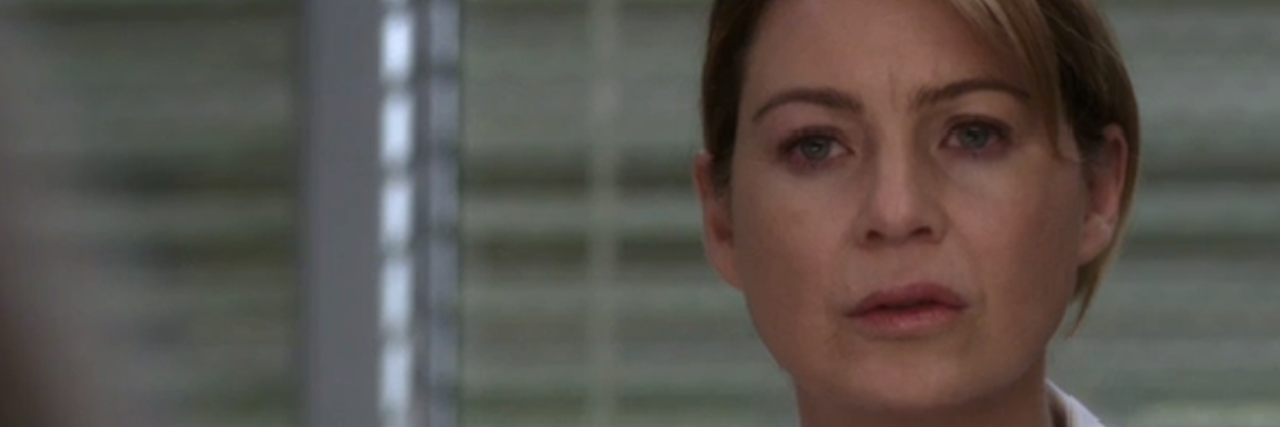The 'Grey's Anatomy' Episodes That Portrayed the Darkest Parts of My Depression
Editor's Note
If you experience suicidal thoughts, the following post could be potentially triggering. You can contact the Crisis Text Line by texting “START” to 741741.
For as long as I can remember, I’ve had an unexplainable need to relate to fictional characters. To connect and bond with them. I was always so excited to see bits of myself in extraordinary worlds. I’ve been a witch in Sunnydale. A liar in Rosewood. A coffee lover in Stars Hollow. I see myself in characters who don’t exist, who live in worlds that don’t exist. Maybe there’s a bit of tragic beauty in that — that I can find my own idiosyncrasies in people who aren’t real.
I’ve never really been able to adequately express depression to my loved ones. To show them it’s not just sadness or being lazy and unmotivated. How do you explain to the people who love you that it’s beyond disappointing to wake up in the morning? Or the countless visions you’ve had of “accidents” where you die? It’s almost an impossible task. This is a reality I’ve lived most of my 28 years of life. Somehow, even writing about it feels difficult.
Thankfully, there’s Meredith Grey.
I could ramble on for hours about how important she as a character is to me, but I’ll stick to the topic at hand: the moment in “Grey’s Anatomy” that portrayed some of the darkest parts of my depression.
In the third season, there’s a trio of episodes that never fails to give me goosebumps. Just before the first episode of the three, Meredith’s mother calls her “ordinary.” The episode opens with Meredith in the bathtub, looking contemplative and maybe a little lost. She slowly slips down under the water for several seconds. Her boyfriend finds her and lifts her out of the water. They argue about it as she gets ready for work. After he leaves, Meredith asks her friend, “You ever feel like you’re disappearing?” That question sets the tone for the upcoming episodes. It’s about disappearing. Darkness. Who would miss you if you were suddenly gone?
The episode carries on, and there’s a devastating ferry boat crash. The doctors and interns alike go to the scene as triage. Meredith encounters a young, lost girl — who looks eerily like how Meredith would look as a child. She helps a man near the water, and he begins seizing, and she is then knocked into the water as the shock-ridden girl looks on. The other two episodes consist of changing perspectives — one where her boyfriend saves her and the doctors work tirelessly to bring her back to life, and the one where Meredith is stuck in some afterlife with formerly departed characters who have to help her decide if she wants to stay in the afterlife or not.
As they interrogate her about the water and what happened, she deflects. Avoids. She’ll do anything but answer their questions. But, as television goes, she eventually confides in one of her afterlife companions.
“I was swimming. I was fighting. And then I thought — just for a second — I thought… what’s the point? And I let go. I stopped fighting. Don’t tell anybody.”
Meredith Grey admitting she stopped fighting, that she was ready for the water to take her, for just one moment, has always been one of my favorite moments of TV. I wouldn’t dare speak for anybody else with depression, but I know for me, it was like watching myself on screen. It was seeing the war inside of my head played out in front of me, and I didn’t feel so “screwed up” anymore. Or I did. But at least I wasn’t “screwed up” alone anymore.
I know that feeling of being ready to give up. I know it better than I know the freckles on my body. I still struggle with it. Daily. I probably always will.
But if Meredith Grey can survive, maybe I can too.
Image via Facebook – Grey’s Anatomy

